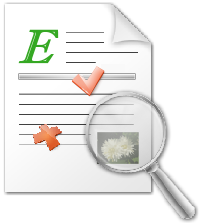 Thesis Editing Guidelines
Thesis Editing Guidelines
[also dissertations or other long texts (30,000+ words)]
- The Editing Process
Editing consists of conducting a thorough review of the writing through line-by-line scrutiny of the text, considering all matters of style.

This includes: sentence and paragraph structures, transitions, word choice and tone, spelling, grammar, punctuation, capitalisation, and vocabulary. We also review the ordering of the material so that it reads clearly and logically.
We will make suggestions for improvement of the clarity, style and flow of the writing so that it presents the best image of the author's writing skills.
If the text needs simplification through removal of verbosity or repetitiveness, we will do that, too.
- Put us to the Test
Don't believe we can do all that? E-mail us a 2 - 3 page sample from your thesis and ask us for a free demonstration. We will do a full editing job on it and return it to you promptly. We are confident that you will be satisfied we can be entrusted to deliver a professional and efficient service to you.
- How We Work
We operate with a Windows 8 computer system and use the Microsoft Word 'Reviewing' toolbar to mark up the corrections on the thesis as it is edited. This allows a client to review and then accept or reject each correction made. In addition, we can give the client a complete, fully edited, final document to review, if requested.

It is usually convenient for both editor and client if the thesis is divided into discrete smaller units, which will most likely be the chapters or sections that make up the work. These are then emailed individually as attachments, eliminating the need for hard copy printouts to be mailed through the post.
It is expected that there will be close consultation and feedback between the client and the Editwrite editor through all stages of the editing. This usually speeds up the whole process.
- References
We use the MHRA Style Book as a primary reference in matters of academic presentation and style, and Chambers 20th Century Dictionary for spelling and semantic checks.
- Limitation of Role
A common request we receive is that the editor have a background or specialist knowledge in the subject/discipline which the thesis comes out of. This is not necessary. A competent editor does not need to understand the intellectual ideas of a text, only how to structure and organise the language of the text so that those ideas are presented with clarity. The intellectual content of the thesis is the sole province of the student and his/her academic supervisor, not Editwrite's editor.

Thus, Editwrite's role does not include critiquing the academic and intellectual ideas in a thesis. It is the student's responsibility to check, and, where necessary, correct, the accuracy of information presented, quotations used, academic citations, etc, in the thesis. When quotations and citations occur as part of the text, they will not be altered by us from the form in which we receive them. Where obvious inaccuracies, errors or absurdities are noticed by the editor, we will draw attention to them, but we cannot guarantee that that will ever be exhaustive, and we take no responsibility for any such errors that may remain.
- Completion period
We can usually complete editing a thesis in less than one week if it is at Masters level, or 1 - 2 weeks if PhD level. However, that cannot be absolutely guaranteed until we have seen the initial document and have had an opportunity to assess the amount of work it will need.
- Variation of Terms
All of the preceding is subject to negotiation and variation, to suit the particular needs of each client. Contact us by email or phone to discuss your particular requirements.
This is an excellent thesis.... there is a refreshing absence of typing or grammatical errors. This is simply a beautiful dissertation that has been a joy to read....Although I have read every word I have found no errors: this is quite remarkable.
--- from examiners' comments on Deborah's 90,000-word PhD thesis, University of Otago
Contact Us
- editor@editwrite.co.nz
- accounts@editwrite.co.nz
- Ph/Fax: (09) 521 1658
- Mobile: (021) 732 360




